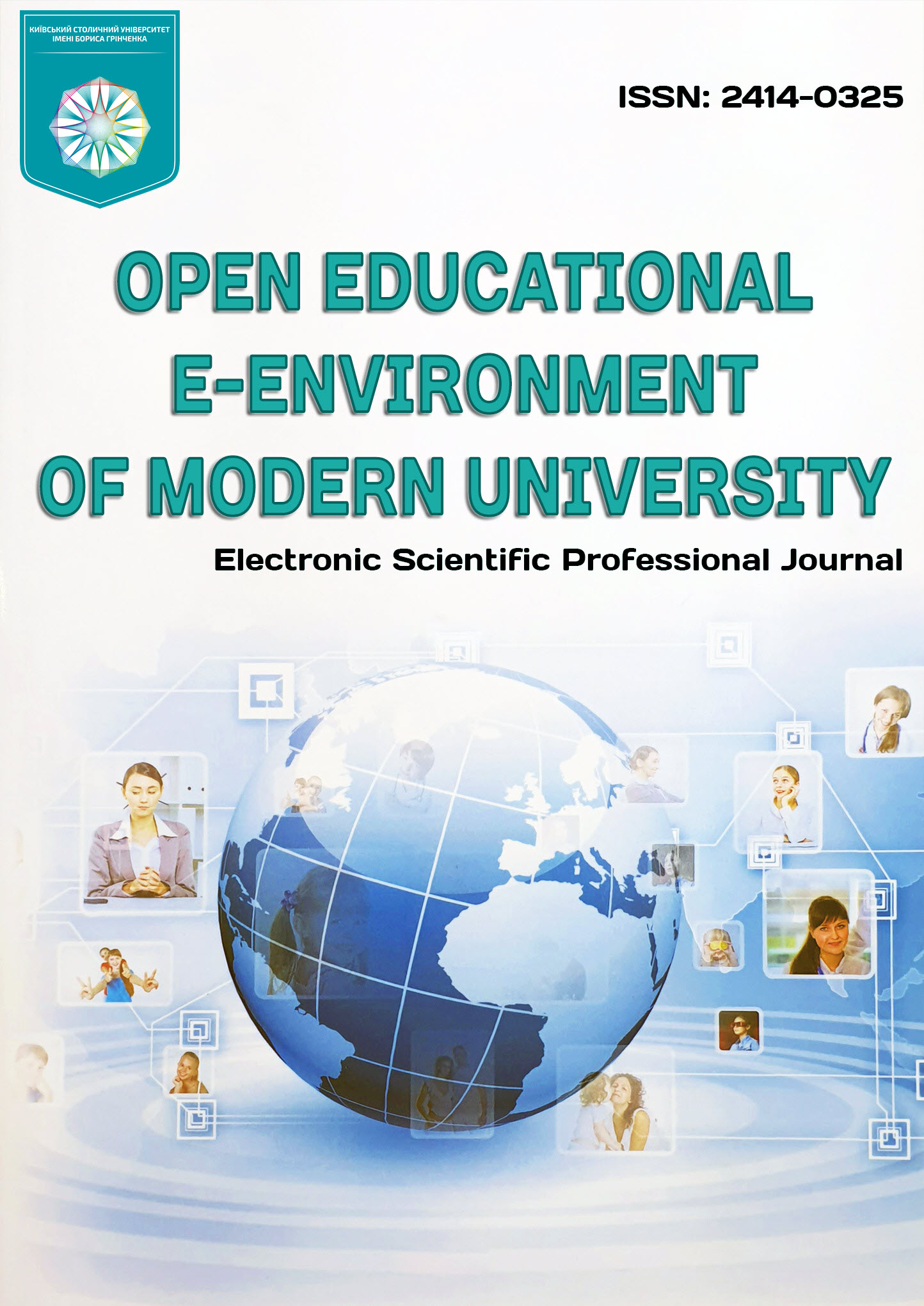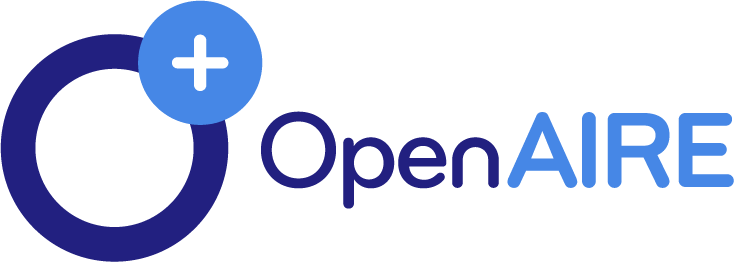DIGITAL TECHNOLOGIES AND THEIR ROLE IN STUDYING HISTORY
DOI:
https://doi.org/10.28925/2414-0325.2025.188Keywords:
digital technologies, history, platform, content, learning, teacherAbstract
The article explores the role of digital technologies in studying history and their impact on enhancing learning efficiency. It outlines key aspects of education digitalization, particularly the use of interactive online resources and multimedia materials for presenting historical events. The study highlights the potential of digital tools in expanding access to historical sources, enabling deeper document analysis, visualizing historical processes, and fostering critical thinking among learners. The advantages of digital technologies in history education are analyzed, including personalized learning, increased motivation, and improved material retention.
A brief overview of modern digital platforms and software applicable to history teaching is provided, along with their functional capabilities. The article is based on an analysis of contemporary research and the authors' practical experience in implementing digital technologies in the educational process. Special attention is given to challenges associated with digital technology integration, particularly the need to develop future educators' digital literacy and adaptability to new technical opportunities, as well as the dynamic changes in the field of digital education.
It is noted that educational platforms are continuously evolving, expanding their functionality and enabling the integration of new approaches in history teaching. The importance of using digital technologies not only to improve access to historical information but also to develop analytical skills, systemic thinking, and historical awareness is emphasized. The article also outlines the possibilities of applying artificial intelligence in education, its role in complementing traditional teaching methods, enhancing content quality, and the necessity of a critical approach to received information. The prospects for further research have been identified, particularly the expansion of the selection of digital tools and their adaptation to the needs of historical education.
Downloads
References
On approval of the conceptual foundations of reforming history education in the system of general secondary education. https://mon.gov.ua/npa/pro-zatverdzhennia-kontseptualnykh-zasad-reformuvannia-istorychnoi-osvity-v-systemi-zahalnoi-serednoi-osvity (in Ukrainian).
Papadopoulou, M., & Smyrnaiou, Z. (2021). Digital history and history teaching in the digital age. arXiv preprint arXiv:2103.00473. https://doi.org/10.48550/arXiv.2103.00473
Edmond, J. (Ed.). (2020). Digital technology and the practices of humanities research. Cambridge: Open Book Publishers. https://doi.org/10.11647/OBP.0192
Hrytsenko, A. (2022). Possibilities of using IT technologies in the implementation of model curricula in civic and historical education of basic secondary education. Bulletin of Hlukhiv National Pedagogical University named after Oleksandr Dovzhenko. Series: Pedagogical Sciences, 1(48), 108-117. (in Ukrainian)
Pshenychnа, O. (2024). Digital and multimedia technologies in specialized secondary and professional pre-higher education: A textbook for master's degree students in "Secondary Education (History)". Zaporizhzhia: ZNU. (in Ukrainian)
Kolomoiets, O. (2023). Digital tools for visualizing history learning materials. Innovative Practices of Scientific Education: Proceedings of the III All-Ukrainian Scientific and Practical Conference. Kyiv: Institute of Gifted Child of the National Academy of Pedagogical Sciences of Ukraine, 315-319. (in Ukrainian)
Pshemytska, Ye. (2022). Social networks as tools for studying history in Ukrainian universities: The case of the Eva.Stories project. Molodyi vchenyi, 12(112), 41-45. https://doi.org/10.32839/2304-5809/2022-12-112-7 (in Ukrainian).
Bondarenko, O., Orlyk, S., & Pyzyk, M. (2024). Digital technology in historical research: Contemporary scholarly current. East European Historical Bulletin, 33, 227-238. https://doi.org/10.24919/2519-058X.33.317459 (in Ukrainian)
Dutchak, I. (2023). Developing digital competence in future history teachers. Continuity System in the Development of Professional Mobility of Future Teachers: Collection of Abstracts of the All-Ukrainian Scientific and Practical Internet Conference (Bila Tserkva, April 27, 2023). Bila Tserkva: Bila Tserkva Humanitarian-Pedagogical College, 114-117. (in Ukrainian)
Sviatets, Yu. (2024). Differentiation of the subject field of historical informatics and digital history. Bulletin of Science and Education, 1(19), 1524-1550. (in Ukrainian)
Burlachka, M. (2022). Digitalization of education in teaching Ukrainian history under martial law. Current Issues of Humanities: Interuniversity Collection of Scientific Papers of Young Scientists of Drohobych Ivan Franko State Pedagogical University, 55(1), 216-220. (in Ukrainian)
Tsapko, A. & Ivanov, V. (2022). Implementation of digital technologies in the training of future history teachers. Psychological and Pedagogical Problems of Higher and Secondary Education in the Context of Modern Challenges: Theory and Practice: Proceedings of the VII International Scientific and Practical Conference. Kharkiv, 1012-1014. (in Ukrainian)
Hryn, O. (2023). Possibilities of the KAHOOT platform in history education. Innovations in Education: Abstracts of the All-Ukrainian Scientific and Practical Conference with International Participation. Chernihiv, 9-12. (in Ukrainian)
Kind-Voitiuk, N. (2021). The modern history teacher and ICT competence in lessons in the New Ukrainian School. Litopys Volyni, 24, 103-107. https://doi.org/10.32782/2305-9389/2021.24.17 (in Ukrainian).
Marynchenko, H., & Motsak, S. (2022). Developing communication competence in future history teachers in distance education: Innovative technologies and methods. Pedagogy of Creative Personality Formation in Higher and General Education: Collection of Scientific Papers, 81, 58-64. https://doi.org/10.32840/1992-5786.2022.81.9 (in Ukrainian)
Shymanchyk, Ya. (2023). Application of innovative digital technologies in history and law lessons: ChatGPT, Telegram chatbots. Innovative Practices of Scientific Education: Proceedings of the III All-Ukrainian Scientific and Practical Conference. Kyiv: Institute of Gifted Child of the National Academy of Pedagogical Sciences of Ukraine, 857–862. (in Ukrainian)
Moskaliuk, M., Moskaliuk, N., & Len, A. (2023). Artificial intelligence in higher education institutions: Advantages and disadvantages. Open Educational E-Environment of the Modern University, 15, 85-96. https://doi.org/10.28925/2414-0325.2023.157 (in Ukrainian)
Published
How to Cite
Issue
Section
License
Copyright (c) 2025 Moskalyuk M., Len A.

This work is licensed under a Creative Commons Attribution-NonCommercial-ShareAlike 4.0 International License.










1.jpg)







